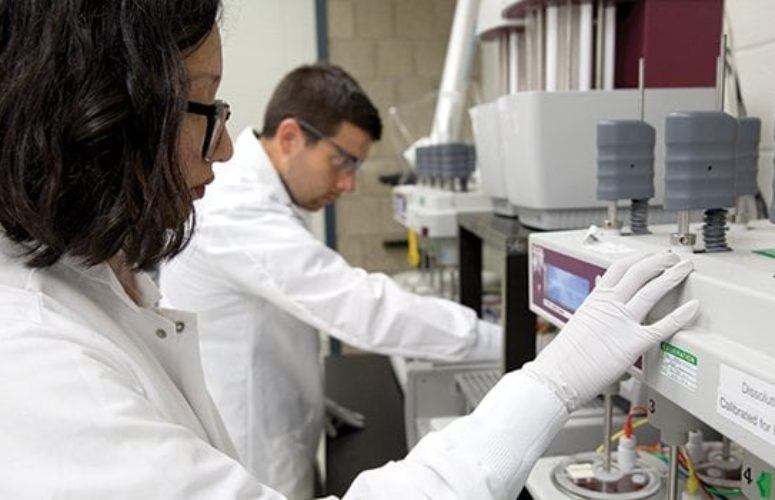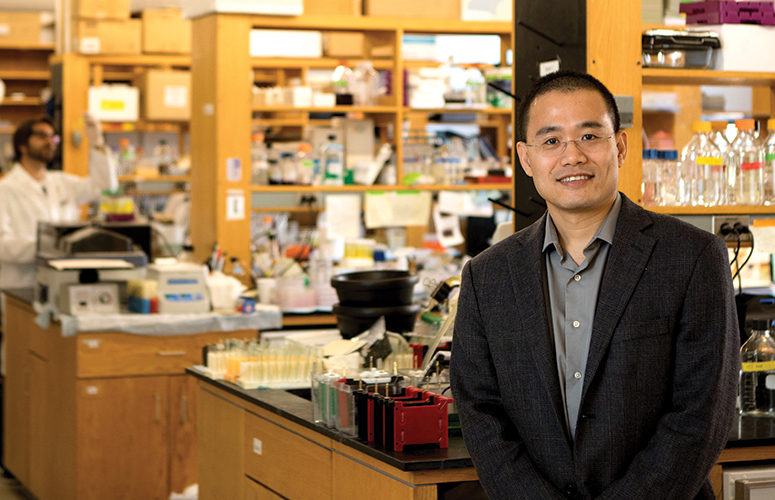
Life Sciences Firms Continue to Lead the Fight Against Cancer
By Debbie Hart, President and CEO, BioNJ On Nov 29, 2017Researchers and clinicians are making remarkable progress in the fight against cancer. Medical innovation has led to lower death rates and, for many patients, cancer has become a chronic condition to be managed, instead of a death sentence.
US cancer survivors have more than doubled to 14.5 million people since 1990 and are projected to hit 19 million by 2024. Approximately 83 percent of survival gains in cancer are attributable to new treatments. With more than 1,200 new cancer medicines in clinical development in the US, patients today have more hope than ever before.
The research and development of new cancer medicines not only helps patients lead longer, healthier lives, but also positively impacts society as a whole. More than half of oncology R&D is occurring right here in New Jersey. In fact, “BioNJ’s Economic Impact of Clinical Trials Activity in New Jersey” (developed in partnership with Rutgers Business School and Rutgers Bloustein School of Planning and Public Policy) reports that the majority of clinical trials taking place in New Jersey are in oncology, with 58 percent in New Jersey vs. 41 percent in the rest of the country.
To date, CenterWatch reports 19 new oncology drug approvals for 2017, with more than half coming from companies with a footprint in New Jersey, including:
- Celgene’s IDHIFA (enasidenib) for the treatment of relapsed or refractory acute myeloid leukemia with IDH2 mutation
- Pfizer’s Besponsa (inotuzumab ozogamicin) for the treatment of adults with relapsed or refractory B-cell precursor acute lymphoblastic leukemia
- Eli Lilly’s Verzenio (abemaciclib) for the treatment of HR+, HER2- breast cancer
- Jazz Pharma’s Vyxeos (daunorubicin and cytarabine) for the treatment of newly-diagnosed therapy-related AML or AML with myelodysplasia-related changes
- Novartis’ Kisqali (ribociclib) for the treatment of breast cancer and Rydapt (midostaurin) for the treatment of FLT3 positive acute myeloid leukemia and mastocytosis
September presented a historic moment in oncology treatment, New Jersey and the biopharma industry as a whole, when Novartis received FDA approval for its groundbreaking CAR-T treatment Kymriah (tisagenlecleucel) – a first-ever cell therapy for a rare form of acute lymphoblastic leukemia.
Just one month later, in October, Kite, a Gilead Company with a footprint here, announced the FDA approval of Yescarta™ (Axicabtagene Ciloleucel) – the second ever CAR-T therapy and the only one approved for the treatment of adult patients with relapsed or refractory large B-cell lymphoma after two or more lines of systemic therapy.
New Jersey has long been known as the talent mecca for the life sciences industry. Thirteen of the top 20 pharmaceutical companies are located in New Jersey, and for very good reason: New Jersey is home to many world-renowned academic institutions – including Rutgers University, Princeton University, Rowan University, New Jersey Institute of Technology and Stevens Institute of Technology – thus providing a talent pool required to perform the research, discovery and commercialization of cancer and other therapies. Many smaller companies are attracted to New Jersey for the talent as well. In fact, many have located here from other states and other countries citing a talent pool rich in commercialization talent in particular, of which New Jersey has more than anywhere else on earth. New Jersey boasts the world’s highest concentration of scientists.
Because Patients Can’t Wait® – and 1.7 million new cancer cases are expected to be diagnosed in 2017 as reported by the American Cancer Society – BioNJ is inspired by and privileged to work with those committed to changing the lives of patients and their families around the world.
Related Articles:






